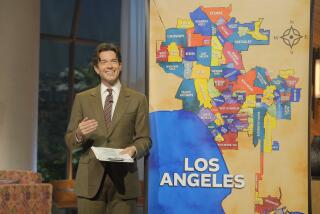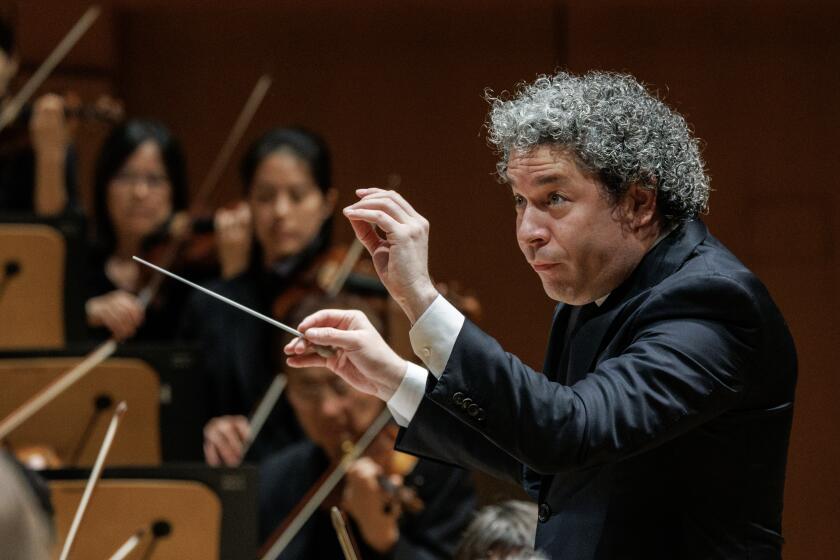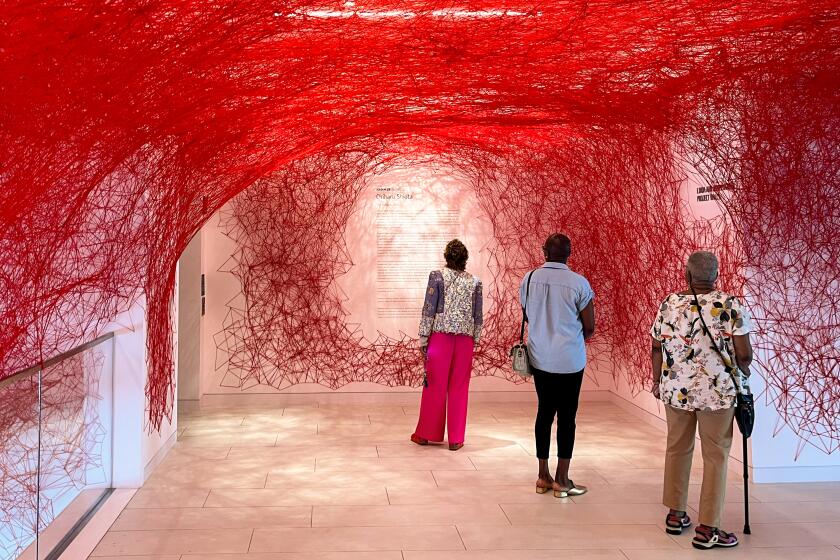Elgar’s Symphonies Are a Matter of Taste
Daniel Cariaga, a music critic at The Times, does not much care for the symphonies of Edward Elgar. Witness these excerpts taken from his reviews over the years:
* First Symphony [May 6, 1995]: “Given the work’s laissez-faire structure, ambitious but uninspired melodies and paucity of interesting musical ideas, the early leavers of the Dorothy Chandler Pavilion could hardly be chastised.”
* Second Symphony [April 11, 1998]: “Overwritten from the first measure, the piece is a compendium of pedestrian symphonic bloating, combining expert orchestral craft in a mundane and frankly British musical pastiche: patriotic fervor, lavish ceremony, dirge-like perorations, fustian rhetoric.”
* Third Symphony [Nov. 2, 1999]: “Like Elgar’s First Symphony, the Third is long (54 minutes on Sunday afternoon), swollen, fragmentary, episodic, fitfully melodious, portentous and unrewarding. It is not a beauty, though it is pretty; mostly, it seemed endless.”
Obviously, Elgar’s symphonies are not Cariaga’s cup of tea. It is not my intention to question Cariaga’s taste in this regard. All of us like what we like, and dislike what we don’t. And Elgar’s lush, late-Romantic music is definitely not for everyone. Yet there are those who would argue that the symphonies are of value, and that Elgar’s melodies are of distinction and that the structure of the works has more cogency than might seem initially apparent.
But getting back to Cariaga: Given his antipathy to the Elgar symphonies, and the misery he finds in sitting through them, just what kind of masochism impels him to keep coming back to review them, concert after concert? A sense of duty? The chance of finding fame in a new edition of “The Lexicon of Musical Invective”? Or perhaps The Times has taken to paying special “combat pay” to those music critics having to endure evenings of British bombast?
Since 1995, Elgar’s First Symphony has been performed twice in the Los Angeles area, the Second once, the Third once. For each concert, it was Cariaga and only Cariaga who reviewed them for The Times. It is not that Cariaga is the newspaper’s chief music critic. He is not. It is not that he is the only other critic at the paper. At any one time, The Times appears to have at least four different individuals covering the local classical music scene. Surely Cariaga could have prevailed upon one of his colleagues to cover at least one Elgar symphony and spare him having to endure yet another evening of agony at the Dorothy Chandler Pavilion?
Two weeks ago, the L.A. Philharmonic performed the Elgar First. For those of us who love the symphony, it made for a splendid evening. I just wondered, though, what Cariaga would have to say about it in his review that would come out on Dec. 8. Could he possibly summon up a new synonym for “pompous” that he had not used before? It was almost fun just thinking about it.
What Cariaga ended up writing was this: “The overwrought First Symphony, characterized by a laissez-faire structure, ambitious but uninspired melodies and paucity of interesting musical ideas, tests the patience.”
The careful reader will notice that what Cariaga wrote in this review reads almost word for word what he wrote about the same symphony in May 1995. Rather than think up anything new to say, he simply chose to basically plagiarize himself.
One wonders why The Times even bothered to send Cariaga down to the Chandler to cover the concert. Perhaps a notice could simply have been placed in Calendar, saying, “For a review of this concert, please consult www.la times.com/archives.”
In her 1955 book, “Edward Elgar: His Life and Music,” Diana McVeagh concludes by saying that, whatever else, Elgar’s music is not for cynics. Could she perhaps have been thinking of Daniel Cariaga?
*
Anthony E. Anderson is a librarian at the Von KleinSmid Library at USC.
More to Read
The biggest entertainment stories
Get our big stories about Hollywood, film, television, music, arts, culture and more right in your inbox as soon as they publish.
You may occasionally receive promotional content from the Los Angeles Times.






